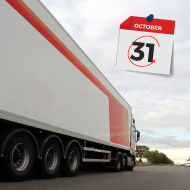
Full guidance available on the government website
Importers and exporters of animals and animal products are being urged by the government to prepare for new animal health regulations, which will come into force if the UK leaves the EU without a deal.
The new rules would apply to importers and exporters of foodstuffs, including meat and cheese, as well as fish and fishery products. They would also apply to the import and export of live animals and other consignments, such as germplasm and animal by-products.
Guidance setting out the steps businesses will need to take to import or export these goods are available on the government website. Defra states that it is maintaining communication with these businesses and individuals to ensure they are ready for Brexit.
“While the Government is seeking a deal with energy and determination, we have stepped up our preparations and we will be fully ready to leave the EU on 31 October, whatever the circumstances,” said Defra minister George Eustice.
“If you or your business import or export animals or animal products such as meat eggs or dairy, we want to help make sure you are ready for Brexit. Our guidance is designed to clearly set out the steps you need to take to ensure you are ready to trade after we leave the EU.”
If the UK leaves the EU without a deal, the European Commission (EC) will need to vote whether to list the UK as a ‘third country’ for exports or animals and animal products to continue.
The EC previously voted to list the UK as a listed third country ahead of a potential no-deal on 12 April.
Defra states that the UK has provided the necessary assurances requested by the European Commission and continues to undertake constructive engagement with the Commission.



 The Federation of Independent Veterinary Practices (FIVP) has announced a third season of its podcast, Practice Matters.
The Federation of Independent Veterinary Practices (FIVP) has announced a third season of its podcast, Practice Matters.